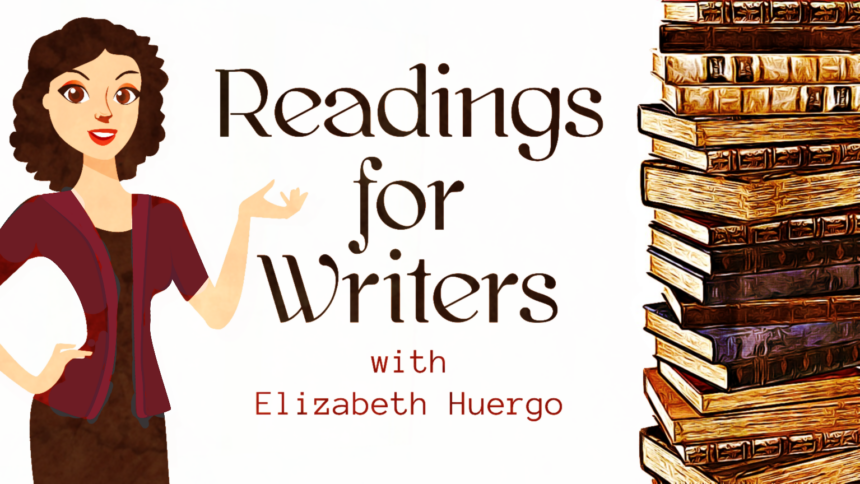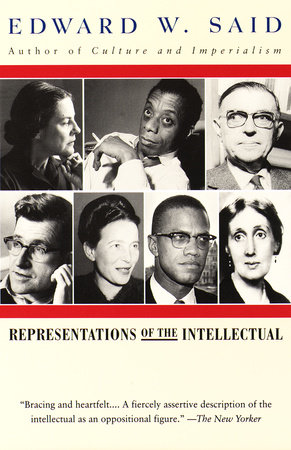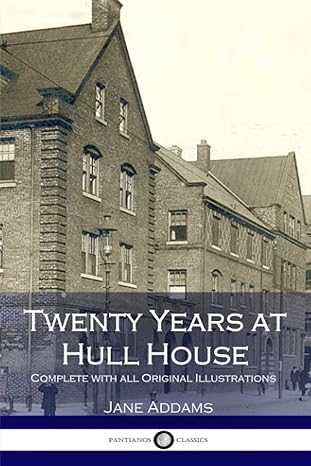Once Exiled, Twice Shy
By Elizabeth Huergo | October 29, 2024 |

One
I was exiled in 1961, after Fidel overthrew Batista, a reactionary, US-backed puppet that quashed without mercy every Democratic movement in the country that was not in concert with US interests. The result unfortunately was Fidel, who descended from the Sierra Maestra, symbol and agent of a counter-revolution that itself sprung from a nexus of social injustice, foreign colonization, and imperial greed. Like so many others I lost my homeland, the trajectory of my life, and the lives of my family, inflected permanently.
Exile is a dislocation, the result of an interminable chain of causes and effects that lie far out of any one individual’s reach or grasp. It is not a choice, like the decision to pull up stakes and “go West” and “grow up with the country” as Horace Greeley advised. Exile is an hecho consumado, a fait accompli if you prefer the French expression. You find yourself in a car that is careening madly across lanes, the driver incapacitated. You reach for the steering wheel. Alas, you are locked in the trunk.
As a child I witnessed the adults around me struggling, working to put one foot in front of the other, while carrying on their backs the sorrow of loss and the fear of uncertainty. That’s hard testimony for anyone to bear, though children are highly plastic, adaptive creatures. Reading was my solace, my way of surviving. Reading mirrored my transit between home and world. I could shuttle across time and space with Austen and the Brontë sisters, Heinlein and Hemingway, Orwell and Huxley, or whatever book I stumbled upon and know that being “in between” was safe; that the transit between self and story offered an important silence.
“What did you learn in school today?” my mother would ask at the dinner table.
 Whatever I reported was countered with lessons from my parents about Cuban history and literature, Cuban customs and language. It wasn’t until many years later, reading Edward Said’s Representations of the Intellectual, a work he presented initially for the BBC’s Reith Lectures, that I realized fully the gift my parents had given me, something Said refers to as the exile’s “double perspective”.
Whatever I reported was countered with lessons from my parents about Cuban history and literature, Cuban customs and language. It wasn’t until many years later, reading Edward Said’s Representations of the Intellectual, a work he presented initially for the BBC’s Reith Lectures, that I realized fully the gift my parents had given me, something Said refers to as the exile’s “double perspective”.
One of the advantages of exile, according to Said, is that we learn to “[l]ook at situations as contingent, not inevitable, [to] look at them as the result of a series of historical choices made by men and women, as facts of society made by human beings, and not as natural or god-given, therefore unchangeable, permanent, irreversible.”
Exile is “contrapuntal,” Said argues. It teaches you to see the present, not in isolation, but always in “counterpoint” (his word) to what has passed: the genocide, slavery, internment camps, forced labor, and colonialism upon which the present is built. You are haunted by history. You become a real-life version of Cole Sear, the troubled, isolated boy who claims to see dead people (“The Sixth Sense,” 1999).
By writing I give witness to a type of loss that for the great majority of Americans no longer exists as a felt experience. The trauma occurred so many generations ago that the immediacy of the pain has faded. To me, on the other hand, the pain of U.S. attempts to colonize Cuba is unremitting, as is the brutality of the ongoing 62-year embargo that has brought the average Cuban citizen to his knees but done nothing to destabilize a Communist government, the reason often given by a succession of U.S. Administrations for never amending an immoral policy.
How do I tell a story about the ghosts my audience doesn’t recognize or imagine? What language, what syntax, genre, or story beats can those of us who live the trauma of U.S. hegemony use to tell the story of colonialism and the colonized, of corsair capitalism and its intimacy with empire?
Two
I love Jane Addams. She is a moral nag and a feminist who never had kids and (I hope) lots of cats. In the “Introduction” to Democracy and Social Ethics, a collection of her lectures published in 1902, Addams warns that “[t]he stern questions [we will face on the Day of Judgment] are not in regard to personal and family relations, but did ye visit the poor, the criminal, the sick, and did ye feed the hungry?”.
 The cornerstone of Addams’ feminism, as well as her practice of “social ethics” within the immigrant communities surrounding Hull House, was Christ’s “Sermon on the Mount,” a radical treatise that turns every prevailing material value directly on its head, a bit like Cervantes does through his indomitable Don Quijote. We are mandated to do what is difficult: to love one another, to see ourselves in others, to see value in those people and things that have the least material worth. Here is the fundamentally radical and transgressive imperative of the Gospels. Here, I would argue, is the radically transgressive imperative of literature.
The cornerstone of Addams’ feminism, as well as her practice of “social ethics” within the immigrant communities surrounding Hull House, was Christ’s “Sermon on the Mount,” a radical treatise that turns every prevailing material value directly on its head, a bit like Cervantes does through his indomitable Don Quijote. We are mandated to do what is difficult: to love one another, to see ourselves in others, to see value in those people and things that have the least material worth. Here is the fundamentally radical and transgressive imperative of the Gospels. Here, I would argue, is the radically transgressive imperative of literature.
It is easy to demonize recent immigrants. It is easy to characterize them as vermin, murderers, thieves, and rabid eaters of beloved pets. Language can make us so fearful that we forget the way empire produces the very immigrants it abhors through, for example, proxy wars that destroy the possibility of a social fabric. We forget our desperation for menial workers, the sort who never ask for a fair wage or humane working conditions. Fear can keep us from questioning why billionaires collude with authoritarians. We can read about any of these facts in a newspaper of record. Only the novel, however, with little to no allegiance to facts, can tell us the broader truth about ourselves and the world because stories evoke empathy in a way a strictly logical argument never does, however many dollops of pathos it deploys.
The primary values of capitalism and modernity are pragmatism and efficiency. If you don’t believe me, listen carefully to arguments about the marvels of AI and which tedious jobs from which costly sectors of a given industry will get replaced. Better yet, consider the publishing industry, its massive consolidations, and the question of which (ghost) stories get told. I suspect only those that can be shaped into an easily recognizable formula, something palatable that sells in great quantities and makes the most money. Yet the stories we most need to read are the least recognizable and the most challenging at the level of sentence and idea.
What is always lost with every new efficiency is our sense of being human, the scale of our lives as opposed to the scale of a machine, an industry, or a social institution. Authoritarians promise efficiency. Get back to work! No need to waste your time reflecting on anything. The iron fist has already taken care of all that. No need to express your objections either—and for exactly the same reason.
Now is the time to slow down and welcome the stories of others, including stories of exile. We need to be “in between,” transit between ourselves and the stories of others. In the transit between self and story lies the promise of genuine thought and, to paraphrase Emerson, genuine action. This artificially ginned up pace we have accepted as “normal,” this freneticism, has its own centrifugal pull and leaves at the center a hollow, while everything that matters (family, friends, community) is shunted to a distant perimeter.
Will I be exiled again, after the 2025 election? Dios sabe. All I know is that a reactionary (not a conservative, someone who believes in conserving social institutions) is promising to deport all non-whites who were not born in the US. He is offering the (false) comforts of an authoritarian state, the comfort of homogeneity, of never having to bristle at brushing past non-white skin, to wince at the rustling of any language but English. What does it feel like to lose one’s sense of place in the world? How does that loss change the very ground of one’s being? May you never know the anguish of that sundering—except in the pages of a story.









So well said, Elizabeth. Thank you for taking the time to do it so eloquently. It is a sad state of affairs. I’m watching from the comfort of my home in Canada. The creep of that kind of authoritarianism threatens our country as well. It’s hard to believe so many have been swayed by the showman, the one who pretends he’s one of them, holding a bible, amping up their fears, creating chaos in their minds. He has so many enablers, who need to look in the mirror and see what we see. And yes, fear keeps people from speaking out. It’s happened before in many places with disastrous results. Praying for a better outcome this time.
Brilliant! Thank you for laying this out so clearly, Elizabeth, and for citing Jane Addams, one of my great heroes. I love your conclusion so much that it’s going up on my wall so I won’t forget: “In the transit between self and story lies the promise of genuine thought and, to paraphrase Emerson, genuine action.” You remind me that in 2016 Donald Maass called on us to identify how the world would be changed if everyone read our current WIP. Our stories have power.
Brilliant and dazzling essay! So much Truth here. Thank you for your courageous voice, Elizabeth. Thank you for working so hard to write what you see, so that others can too.
“What is always lost with every new efficiency is our sense of being human…” I feel this revery day. Thank you for giving it words. And yes, Cole Sear, seeing ghosts. As a person who came up here in the 60’s and 70’s, I have watched in horror the slow roll toward this present-day frenetic madness. Things that seem normal to some people in my life have loomed up for me down the years as giant flashing red lights. The zombie apocalypse is now in full swing. That said, though, I see us forcing hard conversations, demanding reckonings, considering reparations. These conversations terrify some but give others of us great hope. And while the publishing industry is a profit based industry with all the limitations that come with it, I am glad for the multi-cultural voices breaking through, and for the people in the industry who champion and shepherd them. Thank you so much for this post and the perspective it lays out for us so brilliantly. I am going to share it.
Terrific and timely. The link between authoritarianism, efficiency, and relieving people of the responsibility for reflection and thought is one I hadn’t thought about. I believe some people may be drawn to authoritarian figures for exactly that reason. Life feels too hard and fast and complex; let this guy worry about all that for me. Thanks for the reminder to slow down and listen to others’ stories.
Powerful and beautifully written. We are all travelers here, except for our native peoples. Place has always been important to me, because the early loss of my father emphasized the permanence that I needed in the house on a street in Chicago. My mother worked hard to keep that house, to prevent us from losing that environment. I remember to this day her taking us to a small apartment that she thought we might have to live in. There were toys on the floor in one room….but those were not MY TOYS. It is a small metaphor, but it helps me connect with your pain..but also your strength. Thanks for you post.
“It is easy to demonize recent immigrants. It is easy to characterize them as vermin, murderers, thieves, and rabid eaters of beloved pets.”
One reason it’s easy to demonize immigrants here is that Americans live in a country so big that few need to know anything about other people or languages. They are provincial, limited in the range of their experience, and this is what makes them easy marks for propagandists. Novels can help make someone less provincial and more empathetic, but the simple truth is that those who would most benefit from novels don’t read.
Thanks for this–so much to think about. And thanks for talking about our mutual friend (apparently) Jane Addams. Sometimes I fear she’ll be all but forgotten.
Elizabeth, such a haunting piece on loss, pain and longing—and dread at the potential of the ascendancy of policies and practices based on fear and hatred. Thank you for inviting us to know the power of story to lift us. May the story after this coming election be one of hope.
First, thank you for this perspective. It’s not one I’d probably have seen without your help. And it’s very valuable! That said, I’m aware of other dangers that the tyrant wannabe threatens us with. This is no place for me to express them. I’ll do my best to take care of that at the ballot box. I pray it will be enough.
I am reminded of a parable a friend related to me. He said, “The new leader first spoke against a religious group, and then sent his soldiers to arrest them. I did nothing. Then he spoke against a political party, and again the soldiers arrested them. again I did nothing. Then they came for me…”
Once in a lifetime is one too many exiles. You’re too valuable to have to go through that again. I pray our leadership and our voters can see that a democratic nation that chooses a tyrant has no one to blame but itself.
Thank you for your evocative witness. Our fallen human nature brings about much cruelty. We are praying for our nation to adhere to its founding principles. I love America the Beautiful and in particular this verse:
America! America!
God mend thine ev’ry flaw,
Confirm thy soul in self-control,
Thy liberty in law.
My mother was a child on the wrong side of the Spanish Civil War when Francisco Franco partnered with Hitler to bomb her town. She fled with her father and brother on foot to Barcelona, 100 miles away. She lived in fear of being shot for being Catalan, and not Castilian. So I indirectly know your struggle. I hope justice prevails and Harris is elected and you get to continue living here.